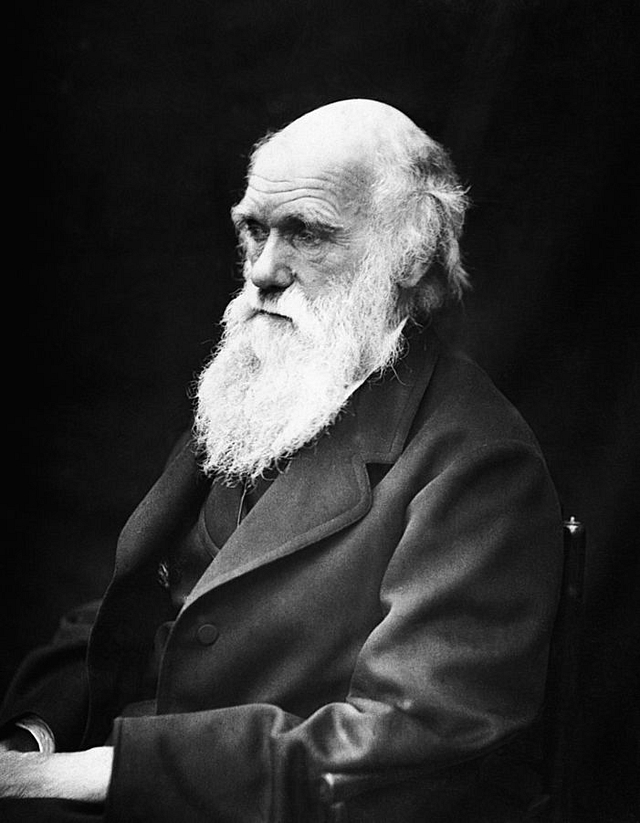
Of Darwin on Darwin Day in 7 Lines
– Charles Robert Darwin discovered natural selection which essentially means: when there are variations and when they can be replicated, there will be selection of certain variations over others; this selection over long periods of time leads to the origin of species. Daniel Dennett considers natural selection an universal algorithmic process which means what Darwin discovered can be extended to many levels of reality. He had uncovered a very basic phenomenon of existence.
– Darwin dethroned the linear chain of ascendancy in the biological realm with (white) man at the top of the chain, which the Western world had inherited from Aristotle. In its place he visualized evolution as a branching tree.
– Darwin did not use or coin the term ‘survival of the fittest’. It was done by Herbert Spencer and when Darwin used the term he essentially meant ‘better designed for an immediate, local environment’.
– The often used phrase ‘Nature, red in tooth and claw’ to illustrate evolution as a violent process was actually written nine years before the publishing of Darwin’s ‘Origin of Species’ (1859) and was written by Lord Tennyson in a very creationist oriented poem that showed nature as inferior to the love of God.
– Darwin himself set a new paradigm for psychology when in 1872 he published ‘The Expression of the Emotions in Man and Animals‘. According to Darwin the mind is not the privilege of human species but like all other biological faculties has an evolutionary continuum with other animals.
– Charles Darwin aided by his son Francis Darwin wrote ‘The Power of Movements in Plants’. Here he proposed that the root tip of the plant may be acting like a brain. Called ‘Root Brain’ hypothesis it has received much renewed attention today.
– Charles Darwin’s last work was ‘The formation of Vegetable Mould, Through the Action of Worms, with Observations of Their Habits‘ (1881). The book explores the relation between the activities of the worms and their impact on the physical as well as geo-chemical properties of earth. Ecologist Paul Ehrlich finds that in this last work, Darwin ‘prescient’ about the Gaia hypothesis.